(“Empowering women in Agriculture”)
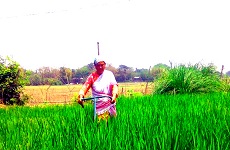 |
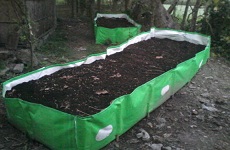 |
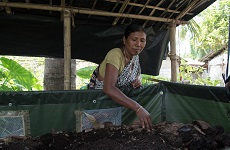 |
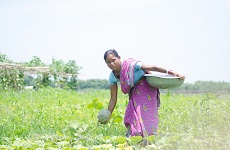 |
Rural women form the most productive work force in the economy of majority of the developing nations including India. More than 80% of rural women are engaged in agriculture activities for their livelihoods. About 20 percent of farm livelihoods are female headed due to widowhood and desertion or male migration. Agriculture support system in India strengthens the exclusion of women from their entitlements as agriculture workers and cultivators. Most of the women-headed households are not able to access extension services, farmers support institutions and production assets like seed, water, credit, subsidy etc. As agriculture worker women are paid lower wage than men.
To improve the present status of women in agriculture, and to enhance the opportunities for her empowerment, Government of India has announced “Mahila Kisan Sashaktikaran Pariyojna (MKSP) as a subcomponent of National Rural Livelihoods Mission (NRLM). MKSP strives to improve the present status of women in agriculture, and to enhance the opportunities for her empowerment.
Assam State Rural Livelihoods Mission proposes to cover 12500 women SHG members under MKSP project in five blocks, namely Ujjani majuli (Majuli), Kushdhowa( Goalpara), Borkhetri (Nalbari), Paka-Betbari (Barpeta) and Lumbajong (Karbi Anglong) within three financial i.e. FY-2016-17 to 2018-19.
The primary objective of the MKSP is to empower women in agriculture by strengthening community institutions of the poor women farmers and leverage their strength to promote sustainable agriculture
The project aims at improving the capacities of women in agriculture to access the resources of other institutions and schemes within a convergence framework.
The details of the Framework and its Scope includes the following activities
 |
 |
 |
 |
 |
Mobilizing the women farmers, facilitating them with demonstrations of sustainable agriculture technologies and providing continuous handholding support to Mahila Kisan during critical stages of intervention are the basic essence of the MKSP project. Eventually women emerge as best practitioners and trainers after abundant amount of capacity building rounds and practical sessions. The various aspects of sustainable agriculture practices which are covered during the capacity building sessions are summarized as follows
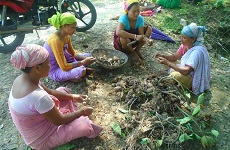 |
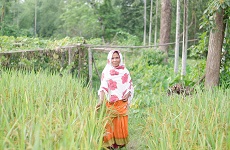 |
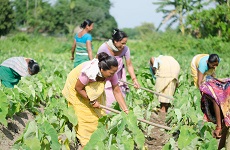 |
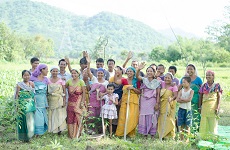 |